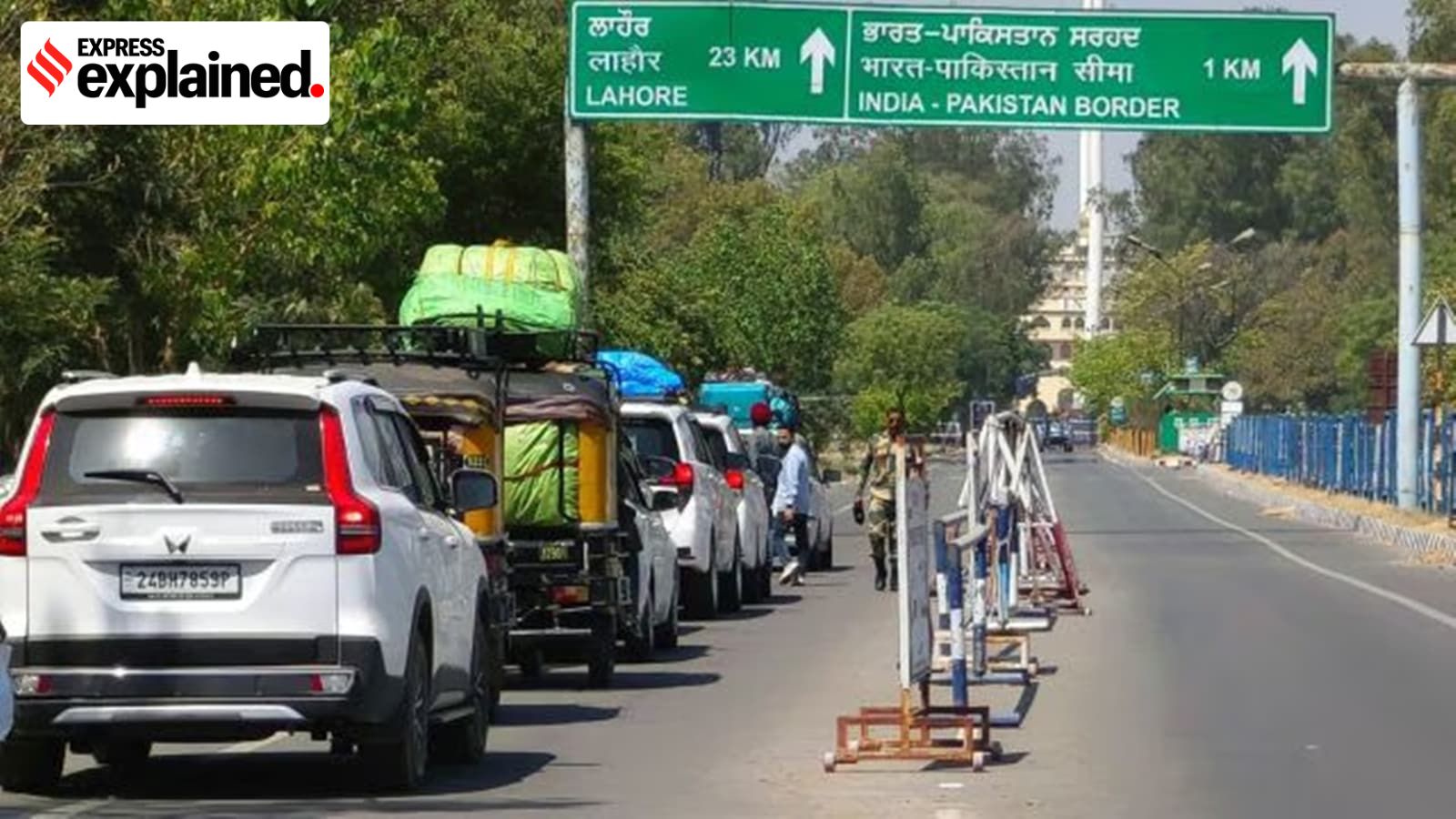One such deportee was Osama, who, in a video recorded by news agency ANI, claimed to have moved to Uri in Jammu & Kashmir’s Baramulla district from Rawalpindi in 2008. He also said that he had voted in India despite holding the citizenship of Pakistan. On April 30, an FIR was filed regarding the matter on the orders of Baramulla’s District Election Officer (DEO).

What are the rules regarding voter IDs?
Article 326 of the Constitution states that every Indian citizen aged 18 years or above has the right to vote in elections to the Lok Sabha and state/Union Territory Assemblies.
Section 16 of the Representation of the People (RP) Act, 1950, expands on this, giving the reasons for which a person can be disqualified for registration in an electoral roll. The disqualification can happen if a person “is not a citizen of India”, if she is “of unsound mind and stands so declared by a competent court”, or if she “is for the time being disqualified from voting under the provisions of any law relating to corrupt practices and other offences in connection with elections.”
The Form 6 — the Election Commission of India’s (ECI’s) form for registering new electors — requires the applicant to provide self-attested copies of age proof and address proof.
Although the applicant does not need to present citizenship proof, the form includes a declaration of citizenship which needs to be signed by the applicant. In case the declaration is found to be false, the applicant can face action as per Section 31 of the RP Act which provides for a punishment with imprisonment of up to one year or a fine or both.
Once the completed form is received, the Electoral Registration Officer (ERO) is expected to enquire into the claims and objections, issue notices of hearing where required, and take a final decision on the same. The Booth Level Officers (BLOs) appointed by the ERO are required to collect the claims and objections on behalf of the ERO or assistant ERO.
Story continues below this ad
How is citizenship determined?
According to the ECI’s manual on electoral rolls, the ERO is responsible for making sure that no ineligible person is added to the electoral roll. However, usually, if there is no objection to a new elector’s applicant, the check for citizenship does not come up.
The manual says when a claim is presented before the ERO, the officer has to “satisfy himself that the applicant is, inter alia, a citizen of India”. The ERO must consider all evidence the person concerned may tender in the course of the inquiry. The manual stresses that EROs must apply their minds independently, “without being influenced by extraneous considerations”.
“It must be remembered that there is a provision for appeal against the decision of the Electoral Registration Officer… The onus of proof of citizenship shall initially lie on the applicant who applies for inclusion of his name for the first time,” the manual states.
In the case of migrants from other parts of India, the ERO has to cross-check with the DEO of the district where the claimants have migrated from.
Story continues below this ad
In the case of married women, who have changed their address as a result of marriage, and who cannot produce documentary evidence as proof of citizenship, the ERO can rely on proof of being registered as a voter as an unmarried person. In such cases, the ERO can also rely on proof of marriage or certificates issued by headmen of both villages where the woman lived before marriage and after.
In case there is an objection filed against an applicant for not being a citizen, the onus of providing the proof is on the objector, according to the manual. Here, the ERO “would be justified in requiring the person concerned to show evidence that he is a citizen of India”.
Have cases of non-citizens getting voter IDs emerged before?
ECI sources say cases of non-citizens getting voter IDs have been found in the past as well. Whenever the objections are found to be true, the electors concerned are struck off the rolls and action has been initiated against them.
Notably, the ECI is currently in the process of linking Aadhaar with Voter IDs to ensure that only Indian citizens get the right to vote. However, in the case of non-citizens who have Aadhaar, that would not be enough to identify ineligible electors.








































